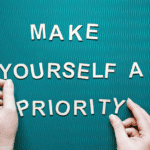- Are you a change-maker?
- What do we feel a change-maker is? We do need to know this before we answer the first question.
It’s believed a change-maker is a person who embraces change and views these changes as opportunities with a positive attitude, as well as someone who actively looks for these challenges and opportunities to make changes in their own futures, their business, or their lives. It’s felt they want to create a new future rather than stay with the status quo.
To be able to be a change-maker we first need to be or do the following:
Be true to ourselves
We may be someone who typically has resisted change and feels change is a negative or bad thing, and so we need to consider if this view is true to us and if it is, why. We need to reflect on our own experiences in the past and times when we’ve felt we’ve perhaps needed to initiate change and felt we’ve failed, and so lacked confidence in trying again.
It’s about changing mindset and believing that we didn’t fail, but that we tried and at that time things didn’t work the way we expected, and that initiating another change or plan isn’t necessarily going to be a bad thing.
Reframe perceived failure
We see the word failure as a bad thing, and yet surely, it’s our perception of ourselves and how we managed something that didn’t end the way we expected it to. If we changed our views on how we view failure, in the same way, a parent tells a child, we could reframe our view, belief and feelings of failure.
Looking back and creating a different ending on our past experiences is often a good activity to do, with trying to view it as we might if it had been someone else’s failure. Seeing things from the other side, another perspective.
Pacing ourselves
To enable us to make any changes, we need to pace ourselves. We do need to have a vision, goals, even hairy-audacious goals, but we can’t change the world, we need to be SMART, consider what we can achieve, when and how. Having a clear plan with actions all broken down into clear methodical steps with expected and measurable outcomes is a good place to start.
To enable us to manage the ‘fear of failure’ we can also build in contingencies and consider the ‘what ifs’ as well as going through the 5 Whys process to check exactly why we are doing what we are doing to ensure we are on the right track.
Are you a change-maker?










